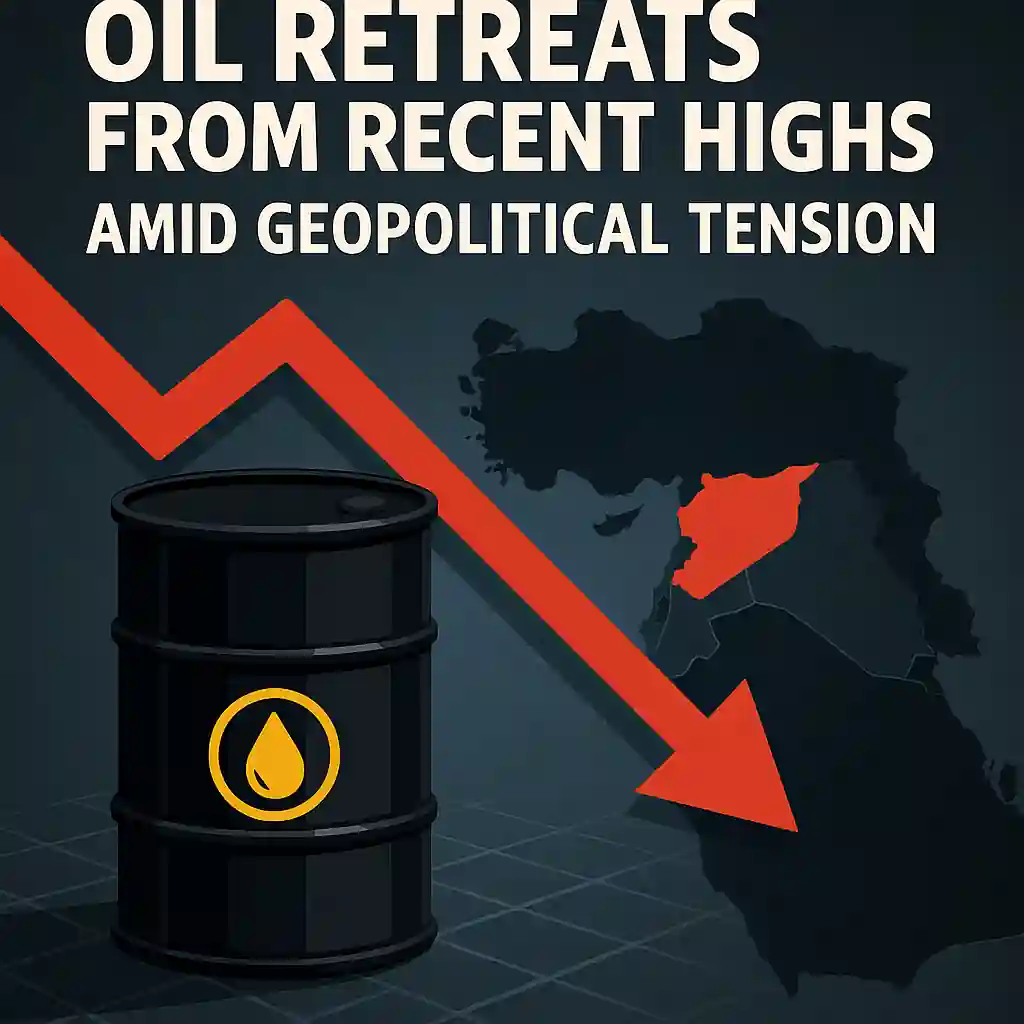Oil retreats from recent highs amid geopolitical tension
Oil prices slipped early this week after reaching two-month highs. The decline followed renewed conflict concerns in the Middle East.
Brent crude and West Texas Intermediate (CL=F, BZ=F) both saw slight declines as tensions between Israel and Iran escalated.
These developments unsettled markets and led to cautious trading after a rally driven by recent supply expectations.
Oil reacted quickly to headlines about possible U.S. embassy evacuations in the region due to security risks.
U.S. considers embassy personnel withdrawal
Yahoo Finance’s Ines Ferré reported the U.S. is evaluating whether to pull embassy personnel from the Middle East.
This development reflects growing concern for regional safety as oil-producing nations become entangled in rising conflict.
Uncertainty around the situation pressured oil markets, even as supply constraints remain a longer-term risk factor.
If U.S. diplomats are withdrawn, it would underscore the seriousness of the situation — further destabilizing oil prices.
Middle East remains critical to oil market stability
Oil markets have always been sensitive to Middle East instability. The region supplies a major share of global crude.
Any threat to transport routes or production capacity sends ripples through global oil prices.
The current standoff between Israel and Iran risks escalation, especially if it spills over into OPEC-member territories.
This uncertainty is now weighing more heavily on traders’ expectations for oil prices through the summer.
Recent rally driven by supply cuts and economic data
Before the pullback, oil had climbed on expectations of tighter supply and resilient demand data from the U.S.
OPEC+ output discipline, alongside U.S. refinery activity, helped push prices higher over the last month.
Still, the oil market remains volatile, with geopolitical risks constantly affecting sentiment and short-term direction.
Now, Middle East tensions are overtaking economic data as the dominant force in oil pricing.
Traders balance supply trends with geopolitical risks
While the underlying supply picture remains tight, risk-off sentiment is growing. Traders are moving cautiously.
Rising oil prices had sparked talk of inflationary pressure, but the latest conflict risk shifts the market’s focus.
With oil retreating from highs, market watchers are questioning whether the next move will be driven by war or output data.
For now, Middle East developments are leading oil news and influencing short-term investor behavior.
Outlook for oil hinges on conflict resolution
If tensions ease, oil may resume its climb, especially if supply remains tight and demand stays firm globally.
However, a worsening crisis in the region could lead to oil price spikes, shipping disruptions, or even supply shocks.
For energy investors and policy makers alike, oil volatility driven by geopolitics is once again center stage.
Oil remains one of the most sensitive asset classes when international diplomacy and safety are at risk.




